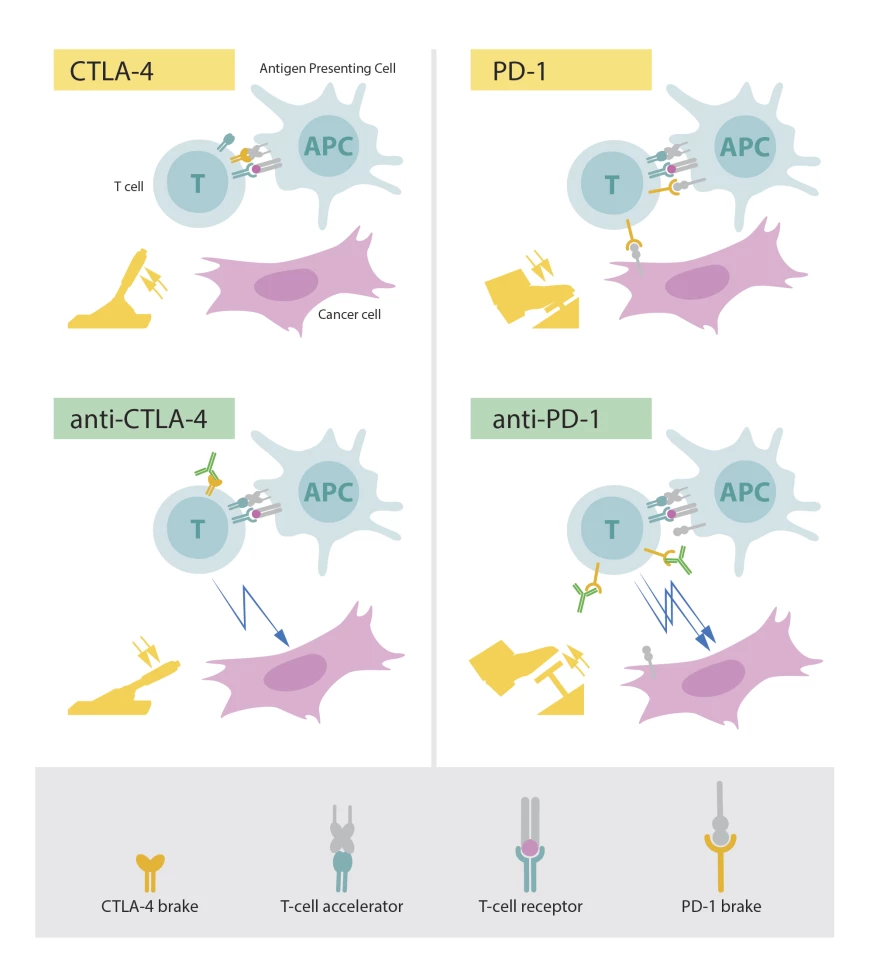The 2018 Nobel Prize in Physiology or Medicine has been awarded to James P. Allison and Tasuku Honjo, for their efforts in the development of cancer immunotherapy. In the 1990s, the two Laureates independently studied proteins that act as "brakes" on immune cells, and helped develop ways to lift those brakes to improve the immune system's effectiveness in fighting cancer.
To keep us healthy, the immune system constantly patrols our bodies in search of "non-self" cells, such as bacteria, viruses, cancer and other threats. T cells are basically the foot soldiers of this system, and they fight off these invaders by binding to them and signalling for the immune system to launch an attack. This function is controlled by proteins that act like accelerators and brakes, which help to strike the right balance between destroying dangerous microbes and avoiding harming healthy cells.
But what if those brakes could be lifted, under controlled circumstances, so that the immune response to cancer could be ramped up? Independently of each other, Allison studied CTLA-4 and Honjo discovered PD-1, both of which are proteins that act as brakes on T cells, and the two scientists led teams to develop ways to inhibit these to fight cancer by rallying a patient's own immune system against it.

These two proteins laid the foundation for immunotherapy, which is emerging as one of our best tools against the Big C, which remains one of the most challenging health problems facing us today. Drugs that inhibit PD-1 or CTLA-4 or both have been loaded into nanodiscs and microneedle patches to deliver them to tumors, and other scientists have used the CRISPR gene-editing tool to remove the gene that encodes for PD-1.
The rest of the 2018 Nobel Prizes are due to be awarded throughout the rest of the week. In the video below, Professor Klas Kärre, member of the Nobel Committee for Physiology or Medicine, discusses the importance of the research and why it earned this year's Nobel Prize.
Source: Nobel Prize




